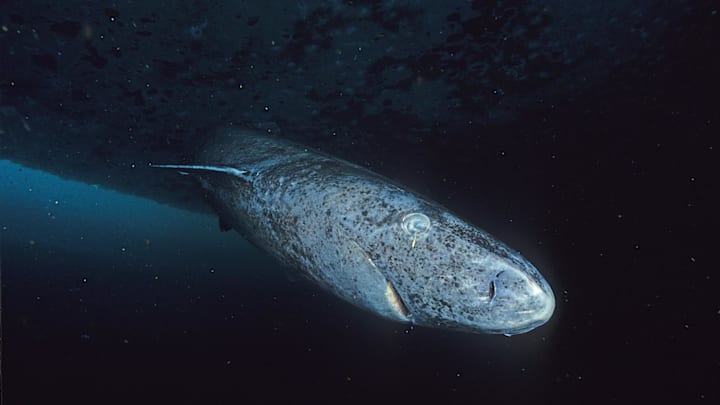Greenland sharks grow at a snail's pace (less than one centimeter per year, to be exact), but they can live for what feels like forever—at least compared to the human lifespan. The Arctic sharks can live for centuries, with one 16-foot specimen identified in 2016 appearing to be at least 272 years old. This data makes the old souls the longest-living vertebrates known to science.
The reasons behind Greenland sharks' extensive lifespans remain hazy, but according to Live Science, a recent study presented at the Society of Experimental Biology Conference in July 2024 suggests that the animal's metabolism may be a clue.
In a nutshell, metabolism is the process of enzymes converting nutrients into energy that's then used to build and repair tissue. It tends to slow with age in most creatures, decreasing energy production, hindering cell regeneration and repair, and disposing waste in cells less efficiently.
Based on its metabolism, the Greenland shark is not like other species. The study authors took tissue samples from 23 sharks and tested different enzymes from each to calculate their metabolic rates and reactions to different temperatures. They then measured the sharks' bodies to determine their ages, revealing lifespans of 60 to 200 years. There were no differences in enzyme function across the sharks of different ages, implying they don't age in the same way as most species. The study also suggests Greenland sharks’ metabolisms don’t slow down over time, which likely contributes to their longevity.
Researchers can agree that calculating a shark's age isn't easy. They typically study the bands of a shark’s vertebrae to measure its lifespan. However, Greenland sharks are more complicated because their vertebrae are too soft to form bands. Scientists had to get creative to determine their ages. In 2016, experts learned they can estimate a Greenland shark’s lifespan by radiocarbon dating. This process measures carbon-14, a radioactive carbon substance found in every living thing, in the sea creature’s eyes. Historical events that caused a spike in carbon-14 levels, like increased nuclear testing after World War II, help researchers approximate how old a Greenland shark is. Experts also learned that a Greenland shark's age can be roughly estimated by examining its body length.
There’s currently no way to determine the exact age of the sharks, but scientists are working on improving their research methods.
Read More Stories About Sea Creatures:
